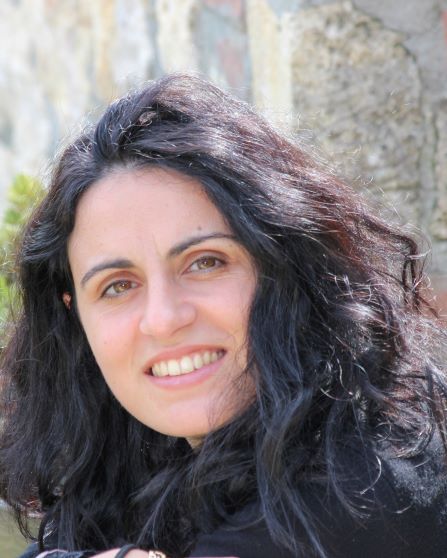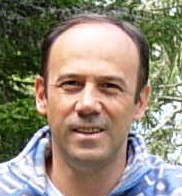Studying at the University of Verona
Here you can find information on the organisational aspects of the Programme, lecture timetables, learning activities and useful contact details for your time at the University, from enrolment to graduation.
Academic calendar
The academic calendar shows the deadlines and scheduled events that are relevant to students, teaching and technical-administrative staff of the University. Public holidays and University closures are also indicated. The academic year normally begins on 1 October each year and ends on 30 September of the following year.
Course calendar
The Academic Calendar sets out the degree programme lecture and exam timetables, as well as the relevant university closure dates..
| Period | From | To |
|---|---|---|
| primo semestre (lauree) | Sep 20, 2021 | Jan 14, 2022 |
| secondo semestre (lauree) | Feb 21, 2022 | Jun 1, 2022 |
| Session | From | To |
|---|---|---|
| sessione invernale | Jan 17, 2022 | Feb 18, 2022 |
| sessione estiva | Jun 6, 2022 | Jul 15, 2022 |
| sessione autunnale | Aug 22, 2022 | Sep 16, 2022 |
| Session | From | To |
|---|---|---|
| sessione autunnale (validità a.a. 2020/2021) | Dec 6, 2021 | Dec 10, 2021 |
| sessione invernale (validità a.a. 2020/2021) | Apr 6, 2022 | Apr 8, 2022 |
| sessione estiva (validità a.a. 2021/2022) | Sep 5, 2022 | Sep 6, 2022 |
Exam calendar
Exam dates and rounds are managed by the relevant Economics Teaching and Student Services Unit.
To view all the exam sessions available, please use the Exam dashboard on ESSE3.
If you forgot your login details or have problems logging in, please contact the relevant IT HelpDesk, or check the login details recovery web page.
Should you have any doubts or questions, please check the Enrollment FAQs
Academic staff
 adriano.cecconi@univr.it
adriano.cecconi@univr.it
 lorenzo.frattarolo@univr.it
lorenzo.frattarolo@univr.it
 federico.innocenti@univr.it
federico.innocenti@univr.it
 martina.menon@univr.it
martina.menon@univr.it
 francesca.rossignoli@univr.it
francesca.rossignoli@univr.it
 0444 393941 (Ufficio Vicenza) 0458028261 (Ufficio Verona)
0444 393941 (Ufficio Vicenza) 0458028261 (Ufficio Verona)
 massimo.tezza@univr.it
massimo.tezza@univr.it
Study Plan
The Study Plan includes all modules, teaching and learning activities that each student will need to undertake during their time at the University.
Please select your Study Plan based on your enrollment year.
1° Year
| Modules | Credits | TAF | SSD |
|---|
2° Year activated in the A.Y. 2022/2023
| Modules | Credits | TAF | SSD |
|---|
3° Year activated in the A.Y. 2023/2024
| Modules | Credits | TAF | SSD |
|---|
| Modules | Credits | TAF | SSD |
|---|
| Modules | Credits | TAF | SSD |
|---|
| Modules | Credits | TAF | SSD |
|---|
| Modules | Credits | TAF | SSD |
|---|
Legend | Type of training activity (TTA)
TAF (Type of Educational Activity) All courses and activities are classified into different types of educational activities, indicated by a letter.
Industrial Economics (2023/2024)
Teaching code
4S00509
Teacher
Coordinator
Credits
9
Language
Italian
Scientific Disciplinary Sector (SSD)
SECS-P/01 - ECONOMICS
Period
Primo semestre (lauree) dal Sep 25, 2023 al Jan 19, 2024.
Courses Single
Authorized
Learning objectives
The main purpose of the course is the economic analysis of firms, and in particular their interaction with competitors, suppliers, customers, consumers, the regulator, as it might be inspired by real cases. The main objective is to train students for a critical reading of these economic phenomena and of the relevant economic sectoral policies. The course investigates firms’ choices using the tools of microeconomics and game theory. In particular, special emphasis is placed on choices regarding price discrimination, product differentiation and innovation, on the relationships with suppliers and the distribution, on online platforms, to see how these choices can modify business environment and the business models available and followed by firms. It is an applied course designed for students interested in the functioning of firms and who will then pursue managerial or consultant positions. The discussion will then be motivated and accompanied by the study of business and other cases, of productive sectors and of major economic policies, as in the tradition of Economics departments of major Business Schools. ALL classes and tutorials will be in ITALIAN.
Prerequisites and basic notions
Having attended the course of Microeconomics
Program
The course program includes the following topics:
- Basic concepts: the basics of microeconomics, market structure and market power, technology and production costs.
- The monopoly power in theory and practice: price discrimination and monopoly; linear and nonlinear prices; variety and product quality in monopoly.
- Oligopoly and strategic interactions: Static Games and Cournot competition; price competition (Bertrand); dynamic games; first and second mover advantage.
- Anticompetitive strategies: limit-pricing and entry deterrence; price-fixing and repeated games; collusion: how to identify and defeat it.
- Contractual relations between firms: horizontal mergers, vertical restraints.
- Non-pricing competition: advertising, market power, competition and information; research & development; patents.
- Networks: network issues.
Bibliography
Didactic methods
The adopted teaching methods consist of:
- lectures, through which the main theoretical concepts are explained,
- exercises, to apply theoretical knowledge,
- discussions of business cases, to relate theory with business strategies,
- participation to a 'competitive game' of competition between companies (Competitive Strategy Game), to learn how to work in a team and apply the concepts learned in a dynamic and stimulating context.
During the course there will be interventions by some company representatives and / or qualified operators.
Office hours by the teacher are available throughout the academic year. The content of the textbook, slides and tutorials are part of the program. Further teaching material is available on the teaching e-learning platform.
Learning assessment procedures
Consistently with the course content, the final exam includes a WRITTEN examination in which the student is asked:
a) to solve analytically some exercises,
b) to answer to multiple choice questions on the theory, and c) to answer a question related to economic news, that is to critically comment current events related to the economic topics of the course.
An INTERMEDIATE exam is planned, and it will weight 50% of the written exam.
Evaluation criteria
Moreover, students are required to prepare an ESSAY (CASE STUDY) on the business model in an international context of a firm of their choice, developing a document of about 1,000 words which must be submitted on the day of the examination. Case studies can be carried out in groups ranging from 2 to 4 students. Each student must be part of one and only one group.
Last but not least, students will have the opportunity to participate in the COMPETITIVE STRATEGY GAME. Developed by the Haas School of Business of the University of Berkeley (USA), it allows groups of student to compete in entering different markets.
Criteria for the composition of the final grade
For the overall grade of the exam, therefore, any bonuses determined as follows can be added to the grade of the written exam:
i) essay (or case study) - compulsory. The evaluation of the essay takes place on a scale of thirty, which leads to the following bonuses: if insufficient (<18/30), -1 points; if 18-20/30, 0 points; if 21-23/30, points 1; if 24-26 out of thirty, points 2; if 27-30 out of thirty, points 3.
ii) Competitive Strategy Game - on a voluntary basis. It entitles you to 1-3 points, depending on a) constant participation (1 point), b) preparation of an adequate report (1 point), and c) victory in your group (1 point).
In summary, the FINAL VOTE therefore includes:
1. the grade obtained in the written test,
2. the score assigned to the compulsory case study,
3. a possible bonus for the optional Competitive Strategy Game.
BONUS DURATION All bonuses are valid for the four exam sessions of the academic year 2023-24, i.e., up to and including the Fall 2024 session.
Exam language
Italiano
Type D and Type F activities
Nei piani didattici di ciascun Corso di studio è previsto l’obbligo di conseguire un certo numero di crediti formativi mediante attività a scelta (chiamate anche "di tipologia D e F").
Oltre che in insegnamenti previsti nei piani didattici di altri corsi di studio e in certificazioni linguistiche o informatiche secondo quanto specificato nei regolamenti di ciascun corso, tali attività possono consistere anche in iniziative extracurriculari di contenuto vario, quali ad esempio la partecipazione a un seminario o a un ciclo di seminari, la frequenza di laboratori didattici, lo svolgimento di project work, stage aggiuntivo, eccetera.
Come per ogni altra attività a scelta, è necessario che anche queste non costituiscano un duplicato di conoscenze e competenze già acquisite dallo studente.
Quelle elencate in questa pagina sono le iniziative extracurriculari che sono state approvate dal Consiglio della Scuola di Economia e Management e quindi consentono a chi vi partecipa l'acquisizione dei CFU specificati, alle condizioni riportate nelle pagine di dettaglio di ciascuna iniziativa.
Si ricorda in proposito che:
- tutte queste iniziative richiedono, per l'acquisizione dei relativi CFU, il superamento di una prova di verifica delle competenze acquisite, secondo le indicazioni contenute nella sezione "Modalità d'esame" della singola attività;
- lo studente è tenuto a inserire nel proprio piano degli studi l'attività prescelta e a iscriversi all'appello appositamente creato per la verbalizzazione, la cui data viene stabilita dal docente di riferimento e pubblicata nella sezione "Modalità d'esame" della singola attività.
COMPETENZE TRASVERSALI
Scopri i percorsi formativi promossi dal Teaching and learning centre dell'Ateneo, destinati agli studenti iscritti ai corsi di laurea, volti alla promozione delle competenze trasversali: https://talc.univr.it/it/competenze-trasversali
ATTENZIONE: Per essere ammessi a sostenere una qualsiasi attività didattica, inlcuse quelle a scelta, è necessario essere iscritti all'anno di corso in cui essa viene offerta. Si raccomanda, pertanto, ai laureandi delle sessioni di dicembre e aprile di NON svolgere attività extracurriculari del nuovo anno accademico, cui loro non risultano iscritti, essendo tali sessioni di laurea con validità riferita all'anno accademico precedente. Quindi, per attività svolte in un anno accademico cui non si è iscritti, non si potrà dar luogo a riconoscimento di CFU.
| years | Modules | TAF | Teacher |
|---|---|---|---|
| 1° 2° | Job Club | D |
Paola Signori
(Coordinator)
|
| 1° 2° | Marketing plan | D |
Virginia Vannucci
(Coordinator)
|
| 1° 2° | Soft skills Coaching Days (Esu 4 job) - 2021/2022 | D |
Paola Signori
(Coordinator)
|
| years | Modules | TAF | Teacher |
|---|---|---|---|
| 1° 2° | Internationalization and Sustainability. Friends or Enemies? | D |
Angelo Zago
(Coordinator)
|
| 1° 2° | Internationalization and Sustainability. Friends or Enemies? | D |
Angelo Zago
(Coordinator)
|
| 1° 2° | Internationalization and Sustainability. Friends or Enemies? | D |
Angelo Zago
(Coordinator)
|
| 1° 2° | Data Visualization Laboratory | D |
Marco Minozzo
(Coordinator)
|
| 1° 2° | Python Laboratory | D |
Marco Minozzo
(Coordinator)
|
| 1° 2° | Data Science Laboratory with SAP | D |
Marco Minozzo
(Coordinator)
|
| 1° 2° | Programming in Matlab | D |
Marco Minozzo
(Coordinator)
|
| 1° 2° | Programming in SAS | D |
Marco Minozzo
(Coordinator)
|
| 1° 2° | Samsung Innovation Camp | D |
Marco Minozzo
(Coordinator)
|
| years | Modules | TAF | Teacher |
|---|---|---|---|
| 1° 2° | What paradigms beyond the pandemic? Individual vs. Society, Private vs. Public | D |
Federico Brunetti
(Coordinator)
|
| years | Modules | TAF | Teacher |
|---|---|---|---|
| 1° 2° | AN INTRODUCTION TO LATEX TYPESETTING SYSTEM | D |
Alberto Peretti
(Coordinator)
|
| years | Modules | TAF | Teacher |
|---|---|---|---|
| 1° 2° | Data Analysis Laboratory with R (Vicenza) | D |
Marco Minozzo
(Coordinator)
|
| 1° 2° | Advanced Excel Laboratory (Vicenza) | D |
Marco Minozzo
(Coordinator)
|
| 1° 2° | Excel Laboratory (Vicenza) | D |
Marco Minozzo
(Coordinator)
|
Career prospects
Module/Programme news
News for students
There you will find information, resources and services useful during your time at the University (Student’s exam record, your study plan on ESSE3, Distance Learning courses, university email account, office forms, administrative procedures, etc.). You can log into MyUnivr with your GIA login details: only in this way will you be able to receive notification of all the notices from your teachers and your secretariat via email and soon also via the Univr app.






























